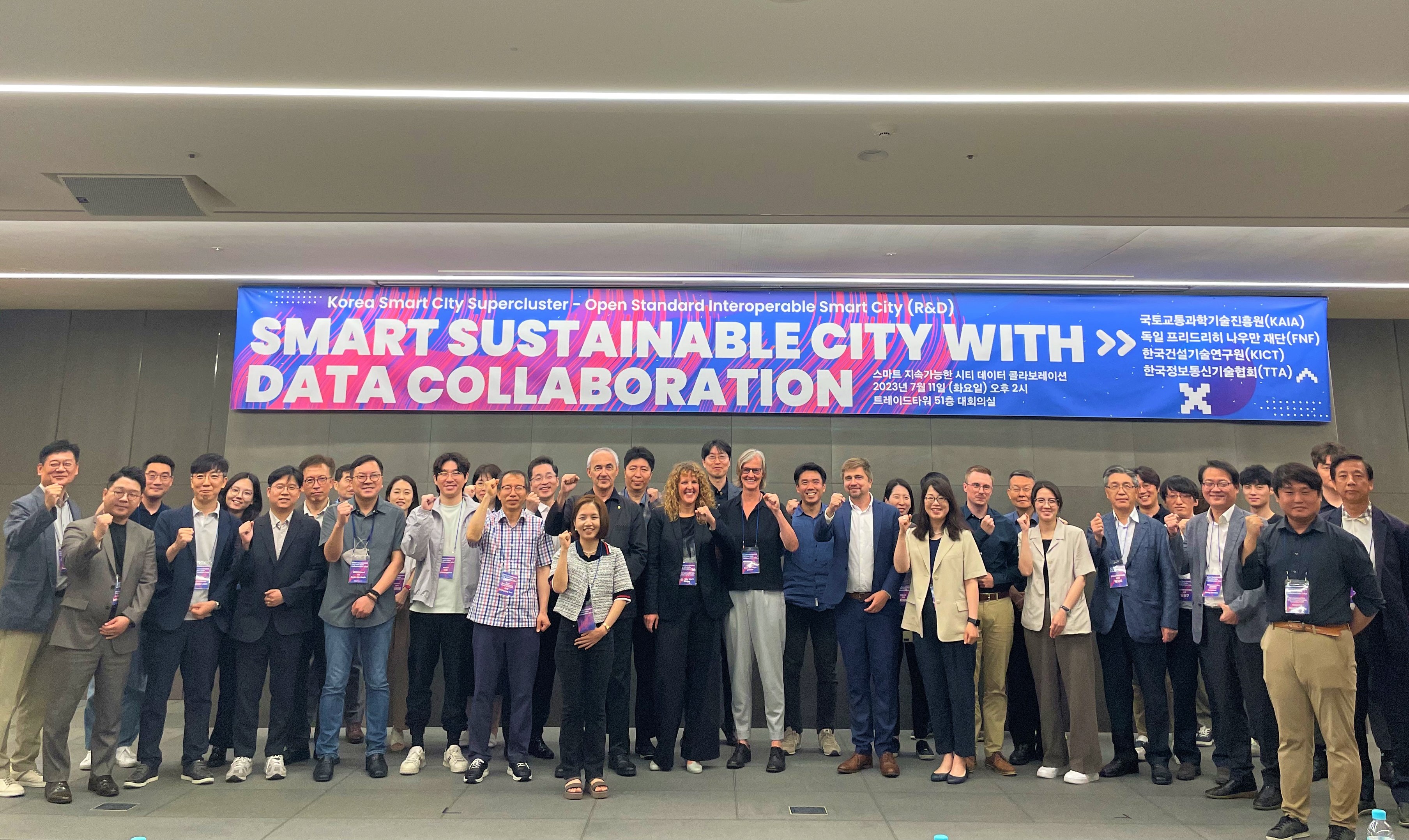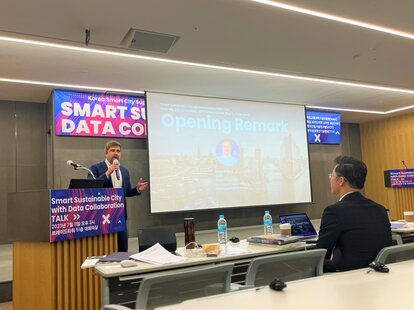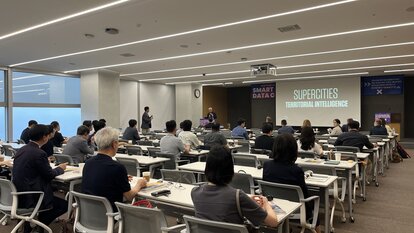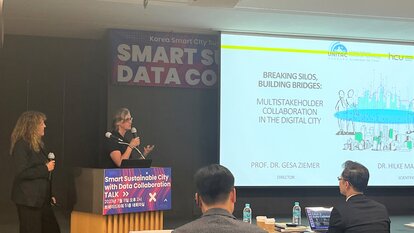Smart Sustainable City
Talk: Smart Sustainable City with Data Collaboration

On July 11th, 2023, Friedrich Naumann Foundation for Freedom Korea Office (FNF Korea) and Korea Agency for Infrastructure and Technology Advancement (KAIA) organized a talk, where international experts shared insights on the development of sustainable cities. The focus was on reconciling "Smart Sustainable City with Data Collaboration," emphasizing the integration of cutting-edge technologies, data-driven solutions, and environmentally conscious practices. The talk was moderated by Seongsig Kim, Senior Research Fellow of Korea Institute of Civil Engineering & Building Technology (KICT), who opened the event alongside an opening speech by Frederic Spohr, Head of FNF Korea. Both underlined the upcoming importance of collaboration and knowledge exchange with international stakeholders when it comes to intelligent urban planning.
The first section of the talk included a presentation by Dr. Alfonso Vegara, Founder and President of Fundación Metrópoli. He addressed the topic of supercities and the intelligence of the territory, emphasizing that in addition to the progressive use of artificial intelligence, human intelligence and especially leadership and vision must be applied also in the area of sustainable cities.

Frederic Spohr, Head of FNF Korea giving an opening speech
Afterwards, Dr. Jina Park, Program Director of KAIA, gave a presentation on HafenCity Hamburg as a blueprint for the new European city on the waterfront. He pointed out that city-innovation is invariably a fusion of process-innovation, socio-economic-innovation, and physical innovation. Therefore, a flexible basic matrix should serve as the main starting point for good urban development.
Following the coffee break, the second section "Breaking Silos, Building Bridges: Multistakeholder collaboration in the digital city" started. The presentation was given by Prof. Dr. Gesa Ziemer, Academic lead of UNITAC (United Nations Innovation Technology Accelerator for Cities) and Director of CityScienceLab (with MIT Media Lab) and Dr. Hilke Marit Berger, Scientific Lead of CityScienceLab and UNITAC. Together they focused on new practices of digital collaboration. The main focus was on how to make data accessible to people. This is a significant core component for people-centered smart cities.
Various interesting aspects were highlighted during the presentations and in the discussions that followed. It remains to be noted that the involvement of the people living in the city and their participation opportunities were always embedded. The talk was also sponsored by Korea Institute of Civil Engineering & Building Technology (KICT) and Telecommunications Technology Association (TTA).

